The Big Read: Does PAP’s changing tack in opposition wards signal a new game plan?
SINGAPORE — Away from the public eye and amid the national focus on the Covid-19 pandemic, changes have been quietly afoot in how the ruling People’s Action Party (PAP) is going about its work to try and wrest back the opposition-controlled Sengkang GRC, Aljunied GRC and Hougang.
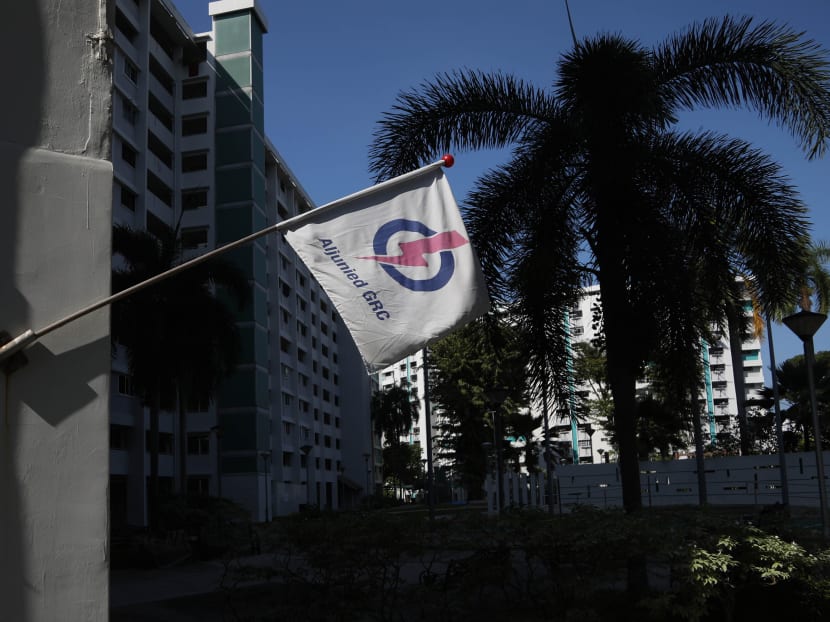
Speaking to TODAY, several PAP activists confirmed that in the past year, they have been urging residents living in the opposition wards to get in touch with their Workers’ Party MPs first.
- Since last year’s General Election, defeated PAP candidates have not restarted their version of meet-the-people sessions
- PAP activists in these opposition constituencies say they have been directing residents who approach them to the Workers’ Party instead
- Recent changes to CIPC funds could also portend a shake-up in grassroot politics, although defeated PAP candidates continue to serve as grassroot advisers
- Some analysts say the unprecedented moves may signal the party acknowledging calls for a fairer playing field
- Others believe that the PAP wants to dispel the notion that voters in opposition wards will have two parties serving them
SINGAPORE — Away from the public eye and amid the national focus on the Covid-19 pandemic, changes have been quietly afoot in how the ruling People’s Action Party (PAP) is going about its work to try and wrest back the opposition-controlled Sengkang GRC, Aljunied GRC and Hougang.
Gone are its version of regular meet-the-people sessions, where the residents sought help from defeated PAP candidates on various issues even though they were not the elected Members of Parliament.
Such assistance extended by the PAP in opposition wards used to be par for the course, given the ruling party’s determination to not cede any lost ground to its rivals permanently.
But since the General Election (GE) held in July last year, some political watchers have observed that such sessions have ceased entirely, even as elected MPs in all PAP and WP constituencies continued holding their sessions — be it physical or virtual — amid the pandemic.
Speaking to TODAY, several PAP activists — who spoke on conditon of anonymity — confirmed that in the past year, they have been urging residents living in the opposition wards to get in touch with their Workers’ Party MPs first.
A party spokesperson said as much in response to TODAY’s queries: “Citizens are advised to approach the elected MP for their place of residence for help”
Still, some PAP activists in these wards were keen to stress that they remain focused on their mission.
In a joint response sent by Mr Victor Lye, who was part of the PAP’s team in Aljunied GRC in the 2020 GE, the PAP branch chairs in Aljunied GRC and Hougang said that their activists and volunteers “continue to support residents in these challenging times”. Mr Lye chairs the PAP’s Bedok Reservoir-Punggol branch.
“Through frank and personal contact built up over the years with our residents, we continue to (receive) feedback on issues close to all our hearts, as Singaporeans,” they added.
However, Mr Lye, who is the grassroots adviser for Aljunied GRC and was co-opted into the PAP’s top decision-making committee last year, did not respond when asked how he intercedes on behalf of residents who turn to him.
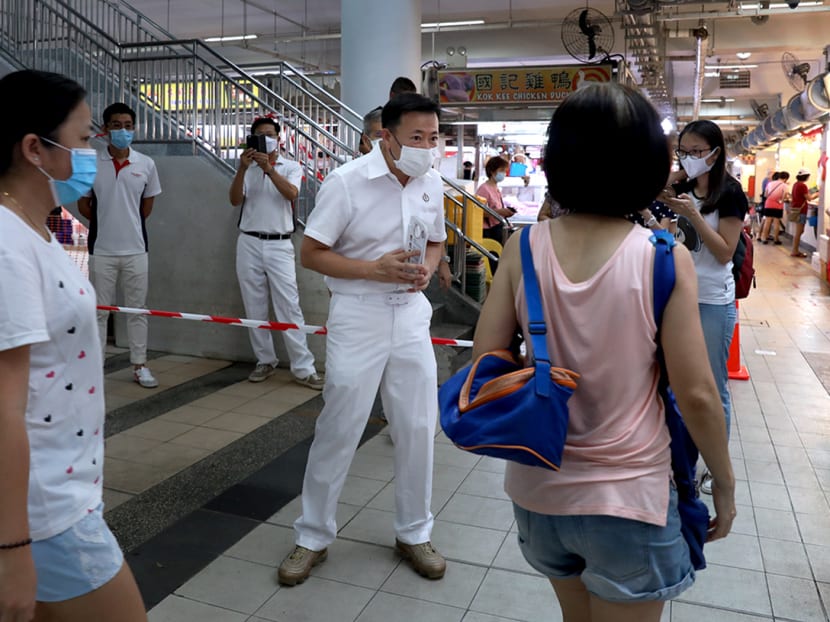
The PAP team in Sengkang did not comment and referred TODAY to the party’s headquarters when approached.
Apart from the PAP ending its “meet-the-people sessions” in the constituencies it had lost, there has also been another significant change in April which could shake up estate-level politics in opposition wards.
The rules surrounding the Community Improvement Projects Committee (CIPC) funds, which has long been a bugbear for the WP, have been tweaked to allow town councils to apply for these government funds independently.
This means that the elected MPs in opposition wards will no longer have to seek access to these funds through the respective constituencies’ Citizens’ Consultative Committees (CCCs), which come under the People’s Association.
The jury is still out regarding how these community development funds will alter the ground politics in opposition wards, with several PAP activists saying the implications of such matters are still being discussed.
Could these changes be a signal that the PAP — often accused of adopting unfair tactics to keep its opponents weak — may be trying to be more magnanimous towards the opposition in their constituencies, as some commentators have suggested?
Political analysts interviewed by TODAY said that could possibly be the case, especially since the idea of “fair play” resonates with younger voters in these wards. After all, the new approach is a big departure from how the party had acted in the past.
The WP declined comment for this article
In 2011, after the PAP lost Aljunied GRC to the WP — the first time the ruling party had ever lost a GRC — it maintained its grip in the constituency through unofficial “meet-the-people sessions”, sometimes at neighbouring blocks to the WP’s official sessions, and a grassroots network of party activists.
Last year’s GE saw the PAP clinching 61.2 per cent of the popular vote. The result was 1.1 percentage points ahead of its poorest performance in GE2011, and below the 65 per cent mark that the party was aiming for, TODAY had earlier reported. The PAP also lost a second GRC — Sengkang — for the first time.
A CHANGE IN DIRECTION SIGNALLED BY PM LEE?
Prime Minister Lee Hsien Loong later said in the debate at the opening of the new Parliament last September that tactical voters — who vote for the Opposition while expecting the PAP to still form the government of the day — could one day end up with a freak result that they did not wish for.
Analysts also recalled that in the same debate, PM Lee and Leader of the Opposition Pritam Singh had sparred over whether such voters were “free riders”, and that residents in opposition wards effectively had “two MPs” from either party serving them.
Former PAP MP Inderjit Singh, who stepped down from politics in 2015, said PM Lee, who is the PAP secretary-general, may have decided that residents cannot have the best of both worlds.
“His statement (on free riders) was kind of the beginning of the change in direction, and the PAP must have decided that if you vote for the opposition, you can only have one group serving you,” he said.
Nevertheless, party insiders spoke of the PAP’s own dilemma in giving more space for WP MPs to operate. The PAP does not want to be seen as though it is throwing in the towel in these wards, they said.
As the saying goes, all politics is local. Intensive ground engagement and strong community links are what win elections, said those interviewed.
A PAP activist from the Fernvale branch, which is adjacent to Sengkang GRC, pointed out that community bonds developed over the years matter more than party politics.
Even though he is no longer a grassroots leader in Sengkang West and his current branch lies within the PAP’s Ang Mo Kio GRC due to the redrawing of electoral boundaries last year, he still receives calls from Sengkang residents for assistance on various issues.
Since the last GE, however, the change in approach has meant that grassroots leaders now refer residents in need to the WP MPs, exhorting them to share details of their problems at the opposition party’s weekly meet-the-people sessions.
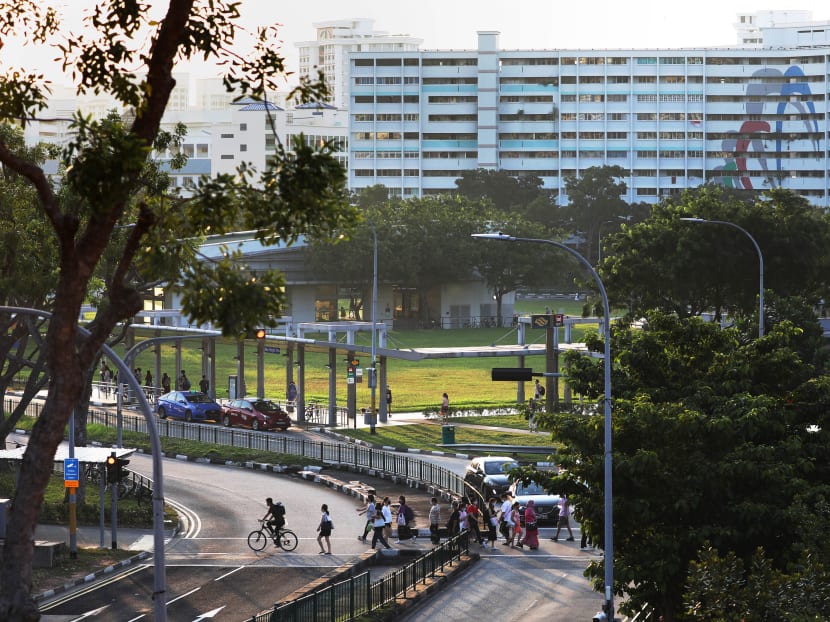
Such sessions are typically only conducted by sitting MPs of their respective wards, though before 2020, defeated PAP candidates held similar sessions under different monikers, such as WeCare, CaRES and Meet-the-Residents.
With these sessions halted for now, PAP has asked activists to point them to the sitting MPs — something that political analysts said has never been done before.
“We have little choice but to direct them to the WP’s meet-the-people sessions now, because they are the elected MPs and it is right that they speak to their elected representatives first,” said the Fernvale activist for more than a decade.
Another activist from the PAP’s Bedok Reservoir-Punggol branch added: “It is only in desperate cases where we will respond to residents. For more official requests, like residents who need their MPs to write to the HDB (Housing and Development Board), we will ask them to approach the WP’s meet-the-people sessions.”
PAP insiders said that from the party’s point of view, the changes place a greater onus on WP MPs to make their residents’ lives better than what the PAP had offered previously.
The Bedok Reservoir-Punggol activist said that when residents are directed to the opposition party’s meet-the-people sessions, activists would emphasise that the sitting MPs are their first port-of-call, though if residents are unable to get the assistance they hope to get, they can approach PAP’s volunteers thereafter.
The reality is that residents have many channels to seek help, so the party does not truly “lose contact” with these residents, said both activists.
If they are in immediate need, residents could apply to assistance programmes administered by the Ministry of Social and Family Development, or to other agencies such as the People’s Association (PA).
“No one is left behind, no matter which way they are politically inclined,” said the Fernvale activist.
APPROACH ALWAYS HOTLY DEBATED WITHIN PAP
Several insiders told TODAY that following every GE, the issue of what sort of engagement activities to carry out in opposition wards is always hotly debated within the PAP.
In the past, the party has always ended up deciding that it should continue its ground engagement efforts because it wants to continue winning hearts and minds in these opposition wards, activists said.
“If the PAP is going to help (the WP) each time by (having) grassroots volunteers do their best even after they lose the GRC, then how are residents going to compare and see if they are doing a better job or not?” said one activist serving within Aljunied GRC.
Political analyst Mustafa Izzuddin, from policy consultancy Solaris Strategies Singapore, said that the meet-the-people sessions are “incredibly useful and important” as a political mechanism because they give the party a sense of the ground sentiments, and also promote this idea that MPs listen to residents and have empathy and compassion for those in their wards.
But the PAP may well be looking at giving up such sessions in opposition wards as a new approach, since its previous strategy did not work.
“(The PAP) has time right now to do a little bit of trial and error, so the party can see whether this new strategy is working or not working on the ground,” said the senior international affairs analyst, noting that the cessation of PAP’s meet-the-people sessions in opposition wards could just be temporary.
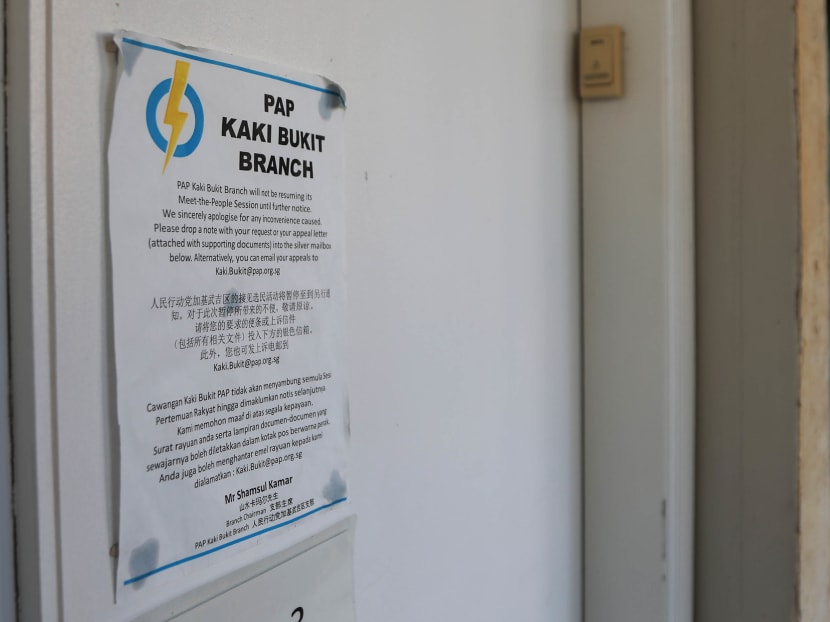
One veteran Hougang PAP activist said that he believes that meet-the-people sessions in his WP-held Single Member Constituency could return as soon as next year, or when the pandemic situation improves.
“We are only using Covid as an excuse. Definitely, we will go back and we won’t back down, because if we want to back down, we would have done so long ago,” he said.
Speaking of his time as an MP in Ang Mo Kio GRC until 2015, Mr Inderjit Singh recalled that residents expected him to do “everything” — from personal issues and complaints to improving the neighbourhood.
“When residents think of who they should seek help from, I think they should go to their MPs. And if the MPs can’t deliver, then that should help the residents decide in the future who they want to vote for,” said Mr Singh, an entrepreneur.
CIPC FUNDS: BONE OF CONTENTION NO MORE?
Another perennial bone of contention between opposition MPs and the Government is the funding from the Community Improvement Projects Committee (CIPC).
Some tens of millions in CIPC funds are issued by the Ministry of National Development (MND) each year to upgrade estates with facilities such as covered walkways, footpaths and playgrounds.
Unlike other forms of government grants which are disbursed directly to all town councils, CIPC funds had to be sought through the constituency’s Citizens’ Consultative Committee (CCC).
Previously, the CCCs, which come under the PA, vetted the applications from the ward’s sitting MPs. But the CCCs, too, came up with ideas for community improvement projects and decided which ones should be proposed to the CIPC for funding.
Opposition parties have had issues with this process as early as 1992, when former WP chief Low Thia Khiang questioned in Parliament about the need for an MP to go through the CCC to apply for funding.
In 2019, WP’s current chief Pritam Singh also raised the issue when he criticised the Eunos CCC for taking seven years to build a barrier-free access ramp at Bedok Reservoir Road.
In PAP wards, the MPs are invariably appointed grassroots advisers, who endorse the CCCs' applications for CIPC funds. In constituencies held by the Opposition, the grassroots advisers are often the defeated PAP candidates.
This has led opposition leaders to cry foul over the fairness of the process, charging that the mechanism serves to deprive opposition wards of funds to improve their estates.
Mr Pritam Singh said in Parliament in 2015 that when Aljunied was held by the PAP prior to the 2011 GE, its town council had received about S$12 million in grants through the CCC from 2009.
From 2012 to 2015, the Aljunied-Hougang Town Council run by the WP received none, he said.
In reply, then Minister of State for National Development Maliki Osman said that although CIPC funds are government funds, they are decided based on whether the projects will lead to “community-oriented” objectives.
“It is not just about allocating funds to a town council, because CIPC funds have never been allocated to the town councils. It has always been allocated to the CCCs,” he said.
In April, MND introduced a key change to the CIPC funding process: Town councils can now apply for funding directly from CIPC without approval from the CCCs.
The CIPC fund provides a 90 per cent subsidy for town improvement projects. Previously, the CCC that applied for the funding would be responsible for raising the remaining 10 per cent of the cost.
That had been the case even though TODAY understands that some PAP town councils had, in the past, taken on the role of partially funding the cost of CIPC projects.
With the change, whichever entity applies for the CIPC funding will now be responsible for co-funding the project.
An MND spokesperson told TODAY: “Given that town councils also play an important role in managing our HDB estates, MND has opened the CIPC scheme to proposals from town councils for funding.
“We recognise that CCCs and town councils both have roles in shaping town improvements.”
Under the new rules, CCCs can continue to propose projects to the CIPC for funding.
But since town councils are responsible for maintaining completed projects, the CCCs will have to seek the town council’s agreement to maintain the new projects before construction can begin, the MND spokesperson said.
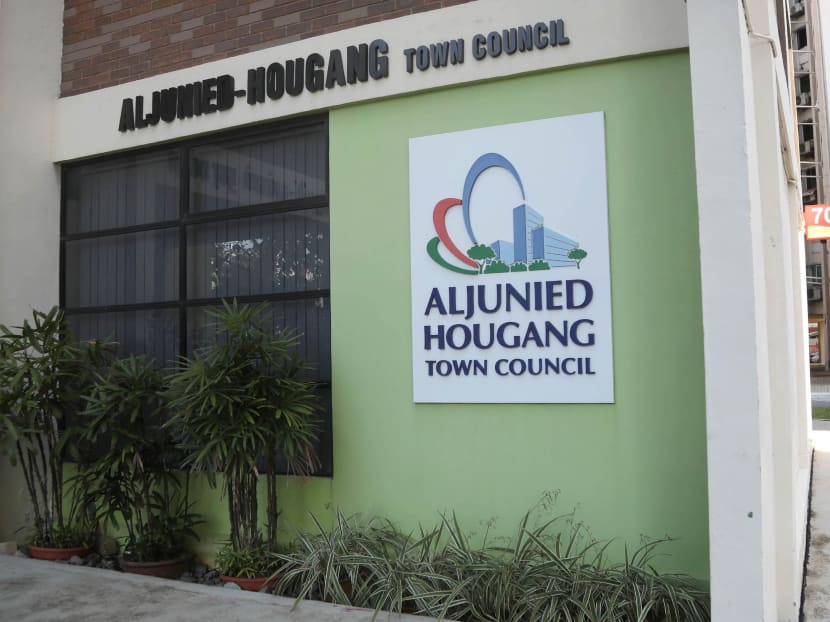
The ministry’s shift in approach also appears to have addressed another sticking point that had been raised by the opposition.
Until recently, the CIPC had 12 members, comprising one senior civil servant and chaired by a PAP political officeholder. The rest of the members were all linked to the PAP as well, including party MPs and Mr Lye.
Now, the committee size has been cut from 12 to five members. Apart from PAP MP Sim Ann, who chairs the committee as Senior Minister of State for National Development, the rest are civil servants from MND, the Ministry of Finance, the Land Transport Authority and the HDB.
Asked for the reason behind the change, the MND said it had “decided to focus its membership on representatives from relevant agencies”, in line with the changes to the funding process.
As discussions continue within the party branches and grassroots organisations on how the new rules will play out, it remains to be seen if the changes will bring an end to the longstanding debate over CIPC funds.
For political observer Eugene Tan, it is a strategic move by the ruling party to force the WP to show that it is equal to the task.
“If their projects seeking CIPC funding are not approved, it can no longer pin the blame solely on the PAP,” said Associate Professor Tan, who teaches law at the Singapore Management University (SMU).
“If they do a good job as MPs, residents will be encouraged and confidence maintained. That can't be bad for the incumbent MPs of an opposition ward.”
READING PAP’S STRATEGY
Political observers say that PAP’s moves to essentially cede some aspects of its work within opposition wards to the sitting MPs is a significant departure for the ruling party.
Back in 1981, after the PAP lost a by-election in Anson to the late WP leader JB Jeyaretnam — marking the end of an era of PAP’s complete control of all seats in Parliament — there was a discussion among the MPs about who would run the community centre in the ward.
In his biography, Emeritus Senior Minister Goh Chok Tong revealed that while he and the younger MPs wanted to pass the community centre to Mr Jeyaretnam, the senior leaders said no.
“You pass it on to him, he would be entrenched and we would never win Anson back again,” Mr Goh recalled the senior leaders saying.
To Associate Professor Bilveer Singh, this incident illustrates how the PAP had behaved in opposition wards over the past decades.
Meet-the-people sessions are a key part of the political structure and culture of the PAP, so it surprised him that the party is willing to forego them. “That is a big, big deal,” said Dr Singh from the National University of Singapore, who authored the book “Is the People’s Action Party Here to Stay?”.
He attributed the new approach to a changed political landscape. "The sense of lack of fair play, the continued existence of a giant against Lilliputians — I think is not accepted by this generation,” he added.
Mr Andrew Yeo, Asia practice lead for public policy advisory firm Global Counsel, said the idea of fairness resonates with a large segment of the population and applies not only to governance but to political practice.
“On the governance front, most would agree that the government has demonstrated that it is adept at passing both forward-looking and redistributive policies. Rather, it is the political style of the ruling party that has divided the public,” said Mr Yeo.
He added that many may perceive the PAP’s “latest overture as a gracious move towards a fairer political landscape”, which is in line with the decision by PM Lee to appoint WP chief Pritam Singh as the Leader of the Opposition.
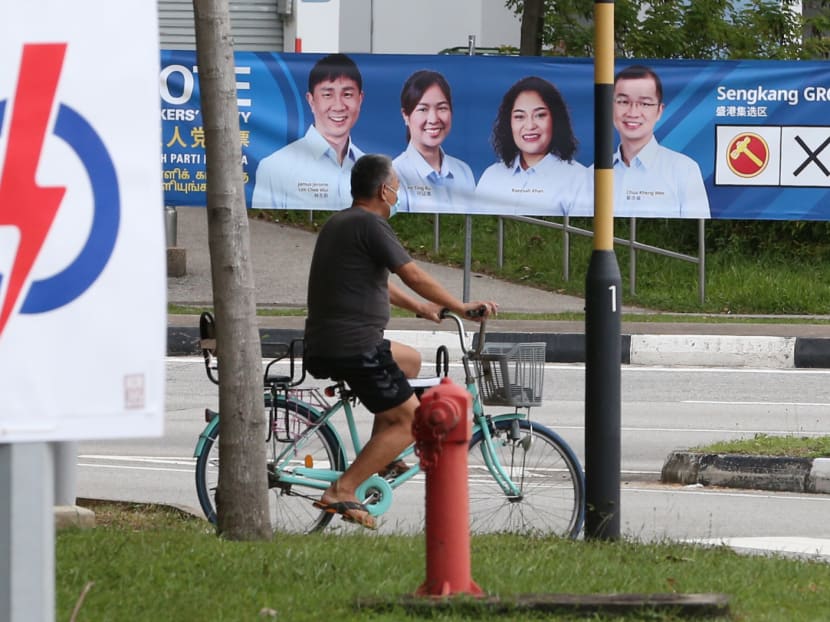
Dr Mustafa from Solaris Strategies agreed that there is a lingering sentiment among some people that they want the PAP to play fairer in opposition wards.
“You don’t see an opposition representative in PAP constituencies in quite the same way. I mean, they do walk the ground, but you don’t see them having the infrastructure or platform by which they can connect with residents. They have to build their own platform,” said Dr Mustafa.
Mr Inderjit Singh, the former PAP MP, stressed that the changing ground politics in opposition wards does not mean the PAP is giving up its stake there.
“From a political perspective, everyone should go all out to win everything. If a party starts to think that they lost a ward to the opposition and therefore should ‘let them have it’ by not disturbing them, I do think that this will be the beginning of the fall of a political party,” he said.
While the PAP’s shift gives the impression that it is acknowledging calls for a fairer political playing field, its decisions are always tactical, observers said.
SMU’s Assoc Prof Tan believes that the moves, at their core, are about blunting the WP’s election sloganeering that if voters vote in the opposition, they will get two parties serving them.
“It is a decisive attempt to ensure that voters in an opposition ward will not have their cake and eat it,” he said.
Mr Inderjit Singh believes that the PAP’s new approach in opposition wards could be an effective political strategy if the opposition is “unable to deliver”.
“In Aljunied for many years, many things got done, not just because of the opposition MPs but also because of PAP advisers who were working very hard. Now that that is gone, it reflects the performance of the opposition, which from any party's perspective, is a good strategy,” he said.
This means that the strategy can also backfire for the PAP if the WP does a great job, which is why for the WP, it has to do “a lot more” for residents and capitalise on this opportunity, he added.
WHAT’S UNCHANGED
Analysts and insiders noted that despite these changes, the PAP did not budge on appointing defeated candidates as grassroots advisers, which is another perennial complaint by opposition parties.
While the PAP may want to appear fair on the political playing field, some note that opposition MPs are still not appointed by the PA to be the grassroots advisers in their own wards.
An Hougang PAP activist said that while the party’s meet-the-people sessions there have stopped, grassroots activities under the PA’s umbrella will continue, although they have paused for the time being due to safe distancing measures.
“The other stuff, like helping the seniors, door-to-door visits, grocery distribution, are all still ongoing. We’re also looking into organising National Day activities for residents right now,” he said.
He added that Aljunied and Hougang residents are also already used to the idea that PAP candidates continue to serve as grassroot advisers even after their defeat in the polls. While the work of PA is non-partisan, the presence of grassroot advisers means that the ruling party’s presence is very much felt on the ground, he said.
Sengkang GRC was newly carved out for the GE last year. Based on interviews with residents and observations in the constituency in the past week, there appears to be a deluge of grassroot activities organised by the PA.
Some media outlets have named two possible new faces that could contest in the GRC in the next election — Mr Kawal Pal Singh and Dr Elmie Nekmat, who also feature prominently in several PA events. Their posters can also be seen on lift landing notice boards used by the PA.
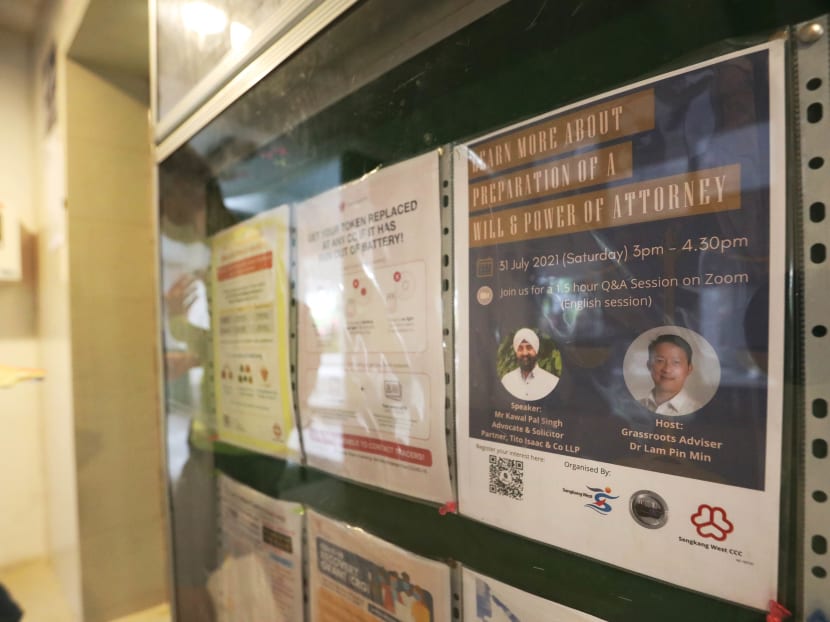
The PAP Government has long maintained that the PA does not play a political role. In 2018, then PA deputy chairman Chan Chun Sing said that grassroot advisers are appointed to carry out the mission of the government of the day, and PA activities are not conducted for political purposes.
While the debate on the appointment of grassroots advisers often veers to why opposition MPs cannot be appointed to these positions, the reality is that the PA’s task is to support and explain government policies, said Mr Inderjit Singh.
“Imagine if the Government appoints opposition members as advisers. I do not think that they will go all out to defend government policies or implement them, because the Opposition are there to oppose,” said Mr Singh.
Instead, he suggested that opposition parties think of other ways to create a grassroots organisation that is the equivalent of the PA.
Mr Singh, who previously ran Ang Mo Kio Town Council as its chairman, said that town councils are one of the levers which can be used by the winning political party to build a grassroots movement as well.
“When I was chairman of a Town Council, I also had someone to work on the engagement of residents, and not just the cut and dry (stuff) of maintenance and building infrastructure. It was also about fostering relations with residents, so that we know what they want,” he said.
PAP’S DILEMMA
Following last year’s GE, the PAP’s Shamsul Kamar penned a note on Facebook that seemed to suggest that he was stepping back from political work in Aljunied GRC.
His five-man team consisting of candidates with no parliamentary experience lost to a heavyweight WP team that included its chief Pritam Singh and chairwoman Sylvia Lim.
“I will not involve myself much in the ground work and day to day running of things to give space to the Workers’ Party with the increased mandate they had received during the last GE,” Mr Shamsul wrote.
“We have to channel the residents we are supporting to the programmes organised by the WP after the duration period of ours ends.”
Still, Mr Shamsul has continued to hand out fliers and greet residents on his walkabouts and home visits under his various roles as grassroots adviser and PAP branch chairman.
When contacted, Mr Shamsul told TODAY: “Broadly, our focus has always been to support the needs of residents in the GRC which for now is centred around the fight against the Covid-19 pandemic.”
He did not respond to further requests for an interview.
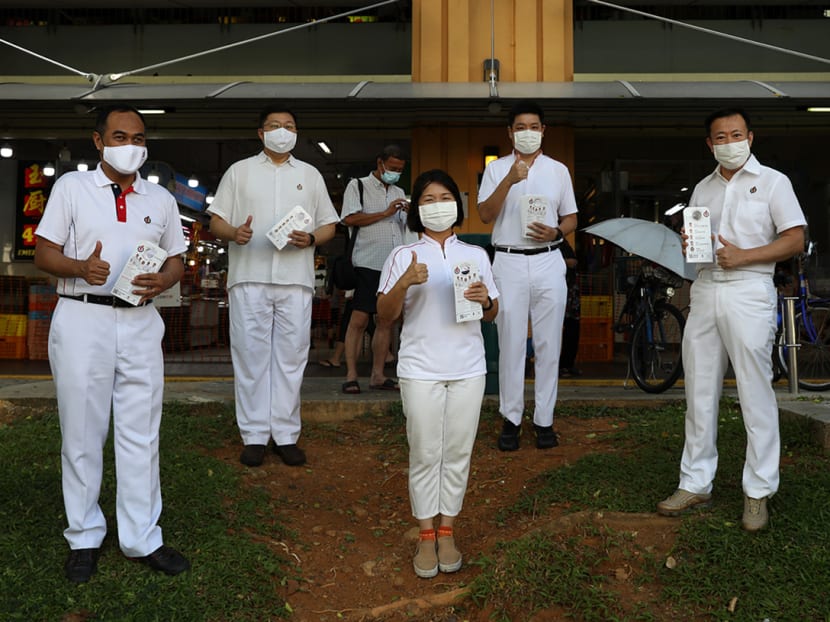
Observers also note that even as the PAP cedes more political space to the elected WP MPs, the party cannot be seen as abandoning residents.
Already, the effects of the PAP not holding its version of meet-the-people sessions can be felt by some residents of a housing block along Bedok Reservoir Road, which comes under the WP-run Aljunied GRC.
“The PAP has given up. I don’t even know who the PAP representative is anymore,” said lorry driver and long-time resident Neo Chin, 63.
Such an impression — that the PAP is no longer around — is precisely what the party wants to avoid but may inevitably stick in residents’ minds due its new approach in opposition constituencies, said analysts.
At the same time, some of the PAP activists’ actions on the ground in opposition wards do not seem to reflect the party’s official message that citizens should seek their elected MPs for assistance — leaving some political observers to wonder how to read the mixed signals.
For example, posters pinned on notice boards around the estates continue to urge residents to contact the losing PAP candidate for appeals and requests.
As grassroots advisers, the defeated candidates from the 2020 GE have also been actively working the ground, visiting Covid-19 testing venues and making house visits in the neighbourhood.
With the next GE not due by 2025, the PAP has plenty of time to finalise its strategy in the opposition wards.
And while there have been concrete changes, not least to the CIPC, political analysts believe the dust has yet to settle and the PAP is keeping the WP guessing.
As Dr Mustafa noted: ”It’s perhaps still early days.”










